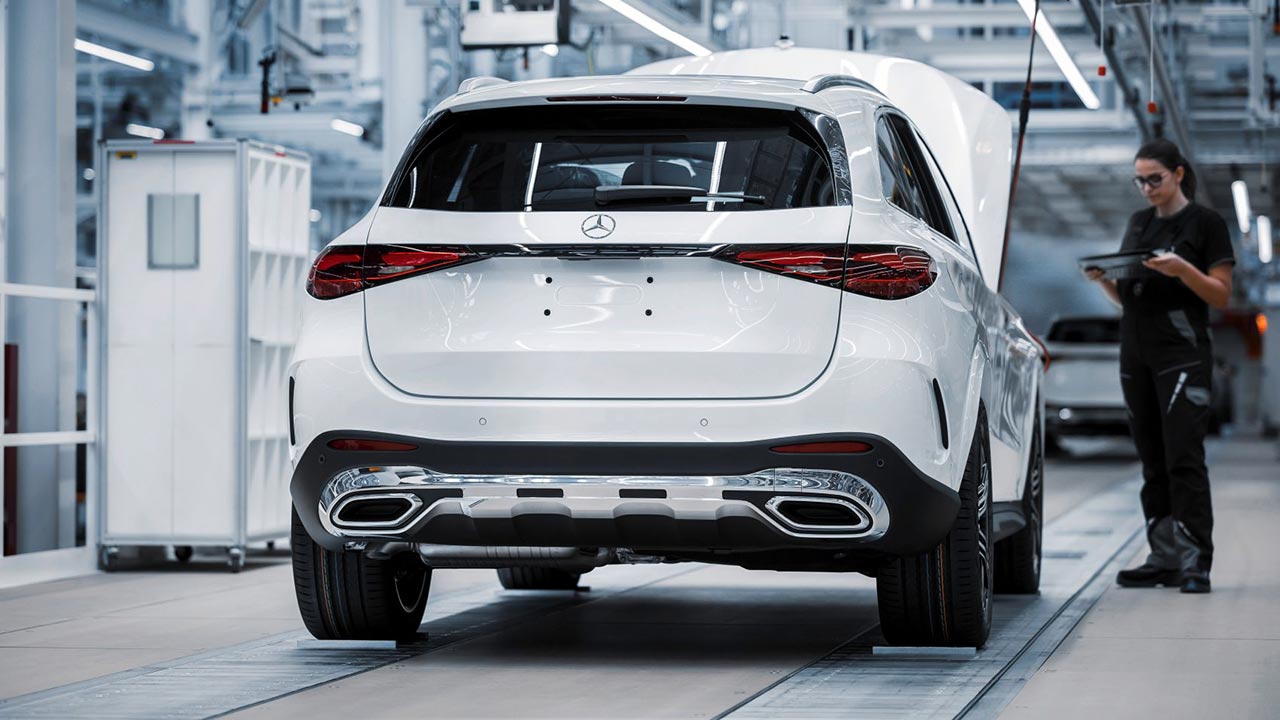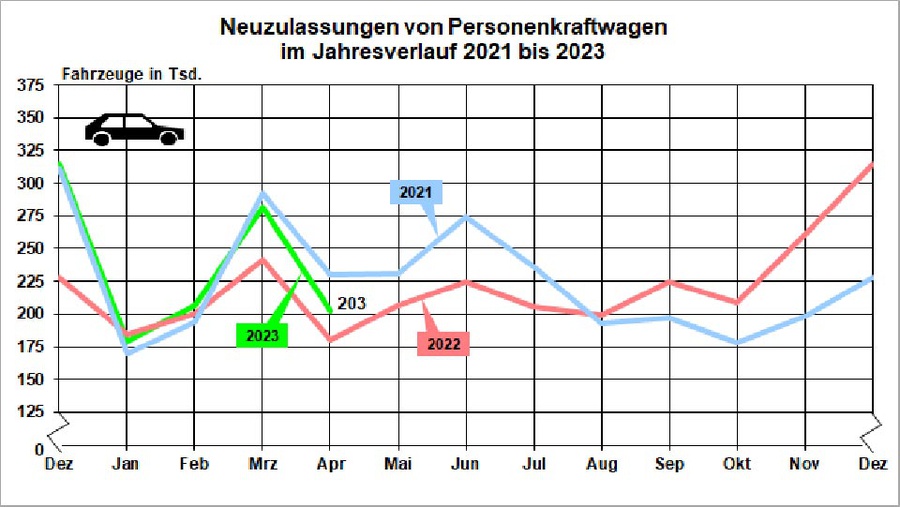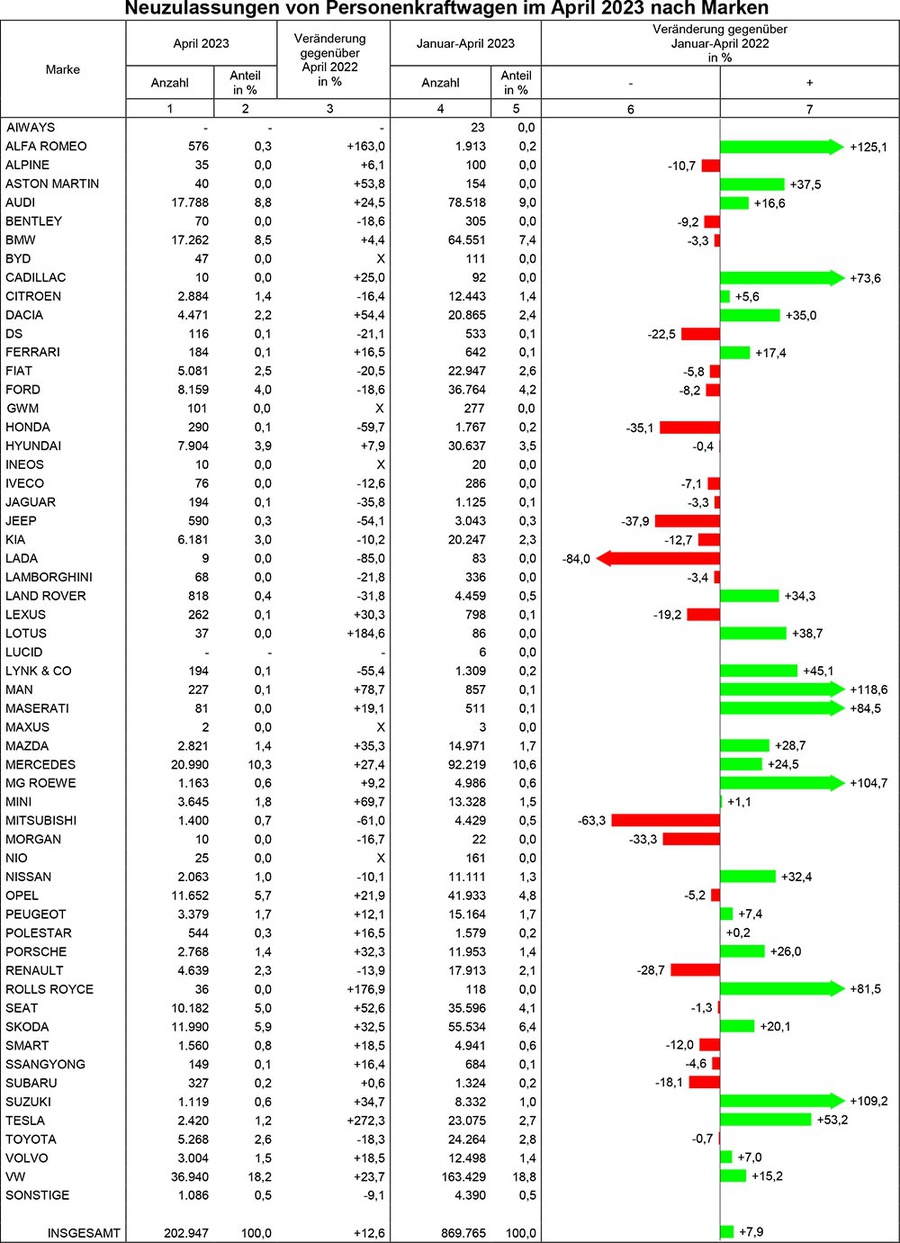Foreign car manufacturers achieved a market share of 38 percent, and the first four months of 2023 saw an 8 percent increase in registrations compared to the same period in 2022.
Reinhard Zirpel, President of the Association of International Motor Vehicle Manufacturers (VDIK), commented on the positive development of new registrations: “The new registrations are developing positively compared to last year, and we also expect a clear increase for the entire second quarter. However, this does not change the fact that the peak levels of the pre-crisis years have not yet been reached. Furthermore, the new registrations reflect improved delivery capability more than actual market demand. The currently low order intake indicates a decreasing willingness of customers to buy, which may affect new registrations in the second half of the year."
In April 2023, 29,700 pure electric cars were newly registered, representing a 34 percent increase compared to the same month in the previous year. In the first four months of 2023, the number of newly registered pure electric cars rose by 18 percent to almost 124,400 units. The number of plug-in hybrid registrations decreased significantly after the end of the government subsidy program for electric vehicles.
In the first four months of 2023, 49,300 plug-in vehicles were newly registered, a decrease of 45 percent compared to the previous year. The share of vehicles with alternative drive systems newly registered in 2023 was slightly lower than the previous year's figure, at 44 percent, with a diesel share of 19 percent and a gasoline share of 37 percent.
In April, almost all German automakers saw increases in new registrations. Porsche led the pack with a 32.3 percent increase, followed by Mercedes at 27.4 percent, Audi at 24.5 percent, VW at 23.7 percent, Opel at 21.9 percent, and Smart at 18.5 percent. Even BMW recorded a positive balance for the registration month, with a growth of 4.4 percent. Only Ford experienced a decline in new registrations, at -18.6 percent. VW maintained the highest share of new registrations, at 18.2 percent.
Among import brands, Tesla achieved the highest percentage increase in new registrations, at 272.3 percent, with a share of 1.2 percent of new registrations. Lotus, Rolls-Royce, and Alfa Romeo also saw significant growth rates of over 100 percent, albeit in the low overall range. Dacia (+54.4 percent) and Seat (+52.6 percent) also achieved significant gains. Skoda was the strongest import brand, with a 32.5 percent increase in new registrations and a share of 5.9 percent.
The growth of the overall market is mainly due to the strong development of commercial registrations, which grew by 18 percent in April. Private market growth was limited to a 3 percent increase compared to the previous year. The share of private registrations in the overall market fell from 36 percent to 33 percent in April.
According to Thomas Peckruhn, Vice President of the Central Association of the German Automotive Industry (ZDK) and spokesperson for the brand trade in Germany: "The situation with new registrations has not changed significantly compared to March. The growth is still mainly driven by the reduction of delivery backlogs. The private market is stagnating, particularly in terms of order intake."
Sources: KBA, VDIK, ZDK



